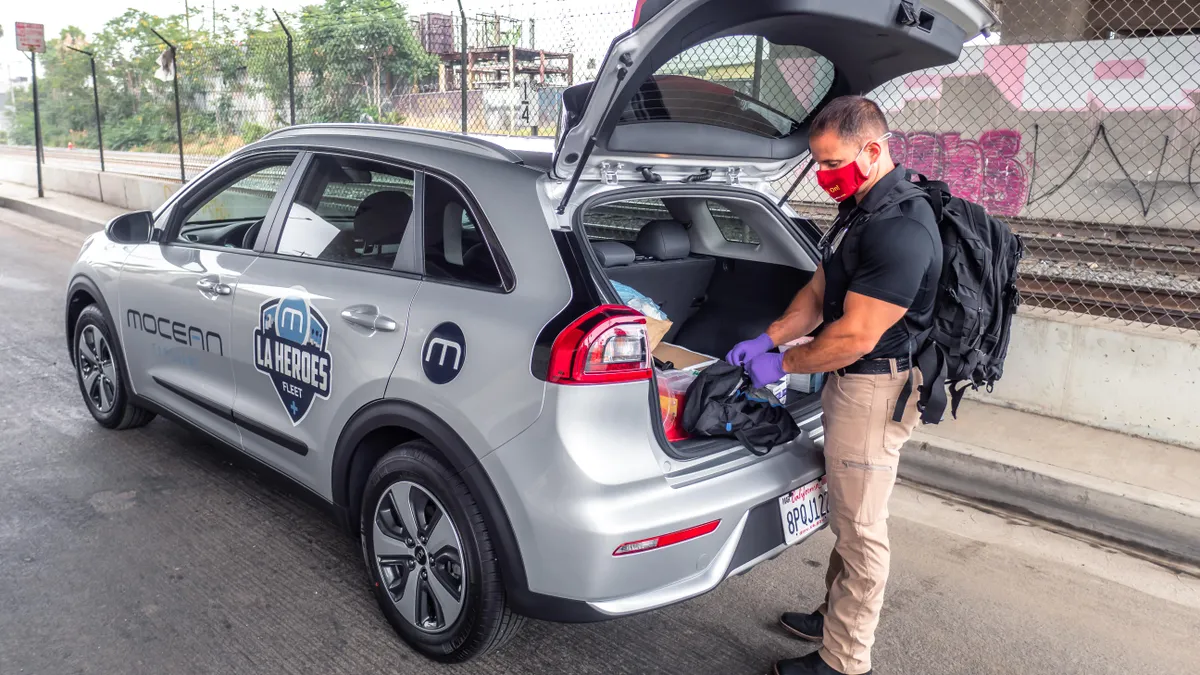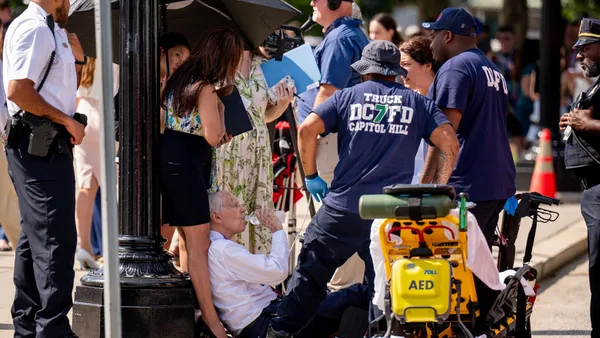Dive Brief:
- Los Angeles-based MoceanLab, a new mobility laboratory developed by Hyundai Motor Group, announced a program to provide low-emission hybrid vehicles from its local car-share fleet to the University of Southern California’s Keck School of Medicine.
- MoceanLab had recently partnered with the City of Los Angeles to recently launch Mocean Carshare, the city’s only free-floating car service that currently consists of about 100 vehicles.
- The USC Street Medicine Team will use the vehicles to visit and treat people experiencing homelessness in city locations that are outside of a "conventional treatment setting," such as encampments or beneath freeway overpasses.
Dive Insight:
MoceanLab was created uniquely for Los Angeles to serve as a sustainable, equitable way for residents to move around the city. Hyundai Motor Group selected Los Angeles as its host city in part because it is "one of the most mobility challenged places in America," MoceanLab Vice President Dave Gallon said.
Los Angeles is often referred to as the most gridlocked city in the world, contributing to poor air quality and long commute times. While the novel coronavirus (COVID-19) pandemic initially eradicated much of that congestion and poor air quality, there’s a concern among transportation experts that city residents will now increasingly turn to private vehicles in a bid to avoid public transit, which could exacerbate Los Angeles' pre-pandemic transportation challenges.
Car-sharing could play a critical role in curbing some of those obstacles as the city works through recovery, Gallon said. He suggested that Los Angeles' car-based culture will lead people to alternative mobility services like car-sharing, and these services can complement public transit and other mobility modes as they return to normal operations.
Car-sharing could even deter individuals from purchasing their own private vehicles. A January 2019 Zipcar report found that 54% of Zipcar members got rid of a personal vehicle after joining the car-sharing service.
The past two years have proven difficult for the car-sharing industry, however. The array of mobility options like scooter, bikes, mopeds and ride-hailing have added to the industry's competition. General Motors (GM) shut down its Maven car-sharing service in April of this year, blaming COVID-19. And Share Now, formerly Car2Go, exited North America, London, Brussels and Florence in December 2019.













